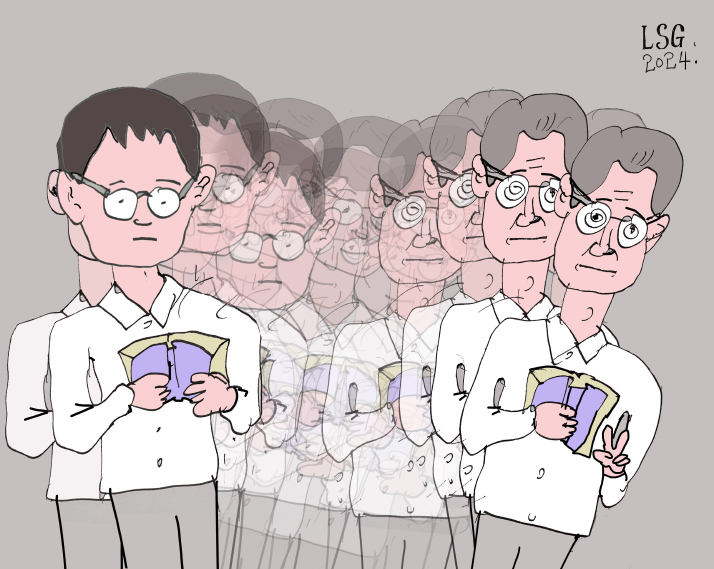| China |
| Time to move eyes away from persistent gaokao retakers | |
|
|
 LI SHIGONG
Liang Shi, at the age of 58, took his 28th college entrance examination (gaokao) in June. His hope is to be admitted to Sichuan University in his home province of Sichuan but he has failed again and again. This year, his gaokao score was 446, 11 points away from Sichuan's admission threshold score. Battered by repeated failures, Liang reportedly always tells himself that he will not take the exam again, but each year he continues to make "one final attempt." Similarly, Tang Shangjun, 36, has taken the gaokao 15 times in a row since 2009. His results are much better than Liang's. He has been admitted to several elite universities like Jilin University and China University of Political Science and Law. However, he has given up these opportunities because his holy grail has always been Tsinghua University, which tops the list of best universities in China, according to the Times Higher Education World University Rankings 2024. The repeated attempts of these two test-takers have been the subject of media scrutiny for many years, but now calls to pay less attention to them are rising. Xu Linsheng (www.rednet.cn): Repeatedly sitting the gaokao does not violate national regulations or policies, so these persistent examinees have the right to do so no matter how old they are. In a society that is becoming increasingly inclusive, people like Liang and Tang enjoy the freedom to pursue their "lofty" dreams of being admitted into an ideal university. However, the voices questioning such examinees have been getting louder and louder in recent years. They are being criticized for wasting education resources, and suspected of having improper motives, like taking the gaokao for the sake of financial benefit and making use of the media to attract attention to themselves. In some places, the government or local businesses will give cash rewards to students who do well in the gaokao. Young students are warned against copying their conduct, as their "unhealthy" obsession with their targets will inevitably cause conflicts within families. People are demanding the spotlight be removed from them. If the media no longer pay them attention, will people like Liang continue to take the test each year? In a diversified society, of course everyone can pursue their dreams, but it's all right to face up to reality and accept that they are just as ordinary as the vast majority of the masses. Stubbornness does not equal bravery. The whole society, the press particularly, needs to wind down the attention placed on these people, for the good of new college candidates and limited social resources. Yang Xiping (views.ce.cn): Liang has taken the gaokao 28 times. This might be beyond many people's understanding and could even be seen as meaningless persistence. However, from Liang's perspective, the gaokao is not merely an examination, but a path to his university dream. In reality, factors such as age, gender and geographical background can all become obstacles on one's road to pursuing dreams. Liang has attempted to shatter his obstacles with his persistence in the gaokao. His pursuit is pure and simple, that is, to be admitted into the university of his choice. After all, Liang, a successful businessman, is already totally financially capable of supporting himself, and he has clearly stated that he will not take advantage of public attention to sell products through live-commerce. Liang's story encourages people to pursue their dreams, regardless of difficulties and challenges. It also reminds people not to judge others, but rather to respect others' choices with an open mind. BR Copyedited by G.P. Wilson Comments to yanwei@cicgamericas.com |
|
||||||||||||||||||||||||||||
|